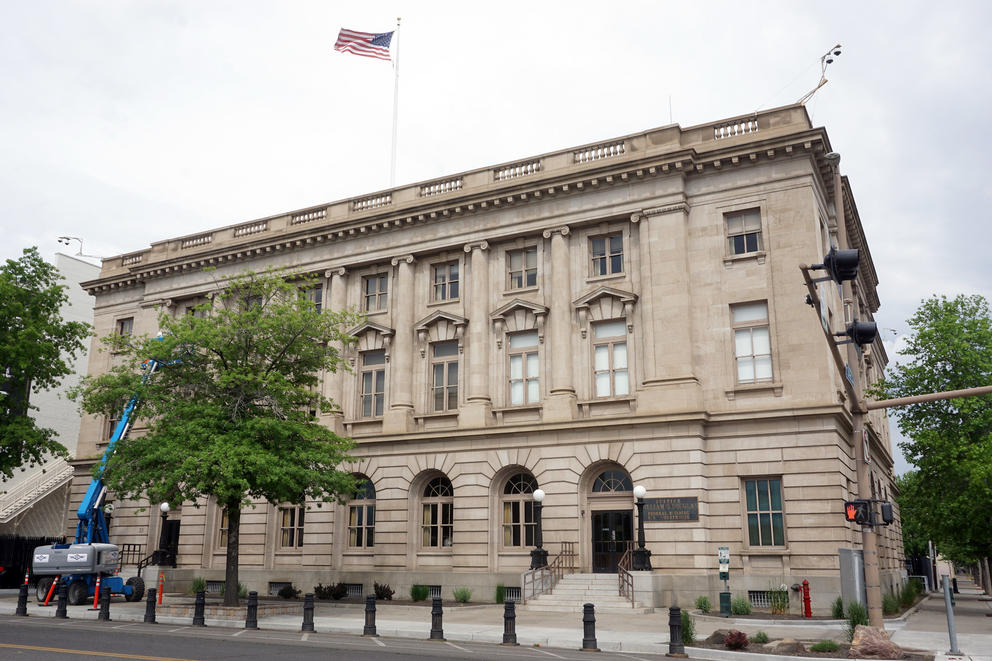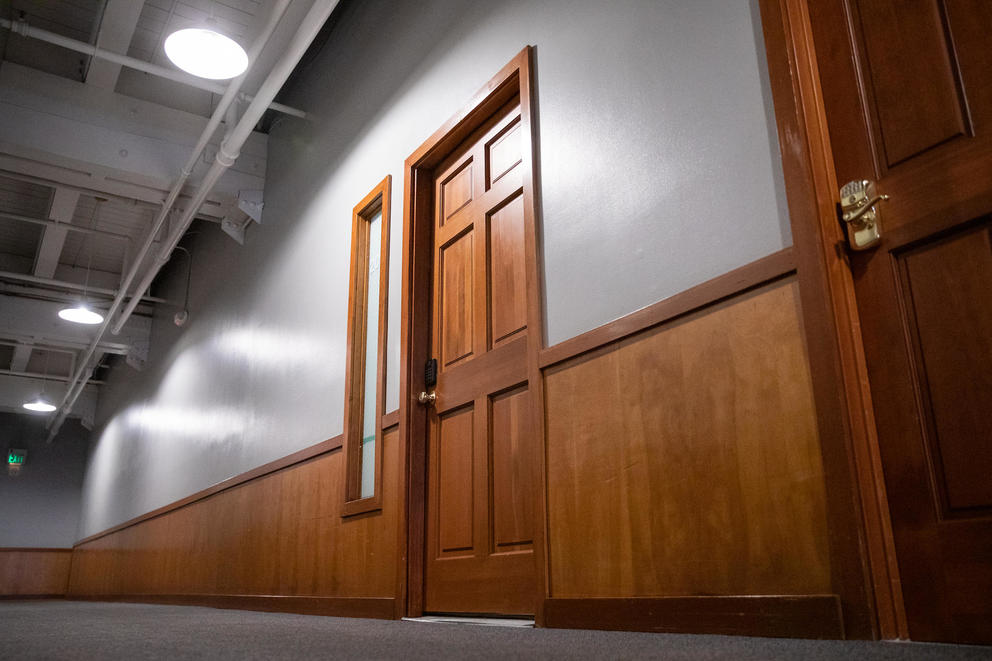By her own attorney’s admission, she didn’t really need the money. Padilla-Reyna took great pride in the success she’d achieved as an immigrant business owner, serving on the state Commission on Hispanic Affairs and allowing her children to go into professions like medicine and accounting when she spent her childhood harvesting fruit.
But underneath that veneer of stability was hundreds of thousands of dollars of tax debt from what she described as honest mistakes on her small business accounting. She portrayed her motivations as not for financial gain but to “get back to square one” with the IRS.
“It was just like, my Hail Mary,” Padilla-Reyna told the judge. “I thought taking from the government to pay the government, [that] was how I rationalized things. But it was still wrong.”
Tuesday’s judgment also represented the steepest punishment yet handed down in response to charges from a pandemic fraud “strike force” established by federal prosecutors in Eastern Washington more than a year ago.
Some 28 people and one company have been criminally charged statewide under a concerted effort to punish those who took advantage of pandemic stimulus programs during the pandemic’s peak, stealing billions from lenders.
Last week, a homeless woman in Spokane became the first person charged by the Eastern Washington strike force to face prison time. Natasha Ann Opsal was sentenced to six months for fraudulently obtaining $53,747 in pandemic business loans. Her attorney argued in court filings that Opsal had already served six months prior to trial.
Also on Tuesday, in Seattle, a former ticket broker named Joseph “Mike” Freeman was sentenced to 12 months and one day in prison for his role in stealing more than $640,000 in Paycheck Protection Program business loans.
Previous Western Washington-based convictions of a tech executive, a state employee and a Nigerian politician resulted in prison sentences of two to five years.
A Government Accountability Office report issued Thursday stated officials had flagged 3.7 million suspicious recipients of pandemic stimulus loans nationwide. The report found that of 94 people convicted of stimulus-related fraud charges by the end of 2021, the average prison sentence ran 37 months.
“The government made a choice to pay and chase,” the Yakima judge told Padilla-Reyna at sentencing. “Unfortunately people chose to take advantage. … The community as a whole needs to know that behavior is unacceptable.”
Tax debts and mental duress
Padilla-Reyna pleaded guilty in July 2022 to submitting a dozen false applications for pandemic business loans and later lying to lenders about using proceeds to pay made-up employees.
Her attorney, Robin Emmans, argued Tuesday that Padilla-Reyna submitted those applications during a period of acute mental illness related to bipolar disorder diagnoses exacerbated by the pandemic. She said that because Padilla-Reyna can pay back the entire loan immediately, incarceration should not be necessary. A recent filing said Padilla-Reyna had placed $300,000 “in trust” with her attorney to pay anticipated restitution.
“Is it functional to incarcerate somebody who has no criminal history, is losing her career, and is unusually able to pay back the money?” Emmans asked Judge Mary Dimke.
This story is a part of Crosscut’s WA Recovery Watch, an investigative project tracking federal dollars in Washington state.
Padilla-Reyna described a childhood spent harvesting fruit as the child of migrant workers with little education. She said she worked her way through college, obtaining a master’s degree and starting her own insurance business.
She traced her crime back to hundreds of thousands of dollars of debt her small business accumulated with the IRS from what Emmans described as a “fundamental and embarrassing misunderstanding of tax law.”
After years of payments, Padilla-Reyna described mounting frustration from what she perceived to be unfair treatment.
“Here’s a fun fact about the IRS: They don’t tell you right away,” she said. “They tell you four or five years later.”
Dimke asked why her IRS debt wasn’t paid off after she obtained the loan.
Under an addendum to the plea agreement, the government will seize the proceeds from a property Padilla-Reyna owns and apply those toward her $302,145 restitution. A filing by Padilla Reyna’s lawyer describes the property as “tied to PPP funds.”
“When there’s an IRS debt that needs to be paid, how about the second house,” Dimke said. “Let’s sell the second house.”
The judge also cited the number of applications as a factor in the sentencing, noting she repeatedly scammed the government with multiple applications and lied to obtain forgiveness over a period of more than a year.
“My concern is that when she got into trouble with the IRS, her answer to that was to go commit a bigger crime,” Dimke said.
In addition to the 15-month incarceration and restitution payments, Dimke imposed a $25,000 fine. Upon release she is required to complete financial counseling.
Joseph Freeman rented this one-room office for five years until in May 2022 the building’s management evicted him for not paying his rent. Freeman was by then under investigation for $640,000 in PPP loans he received for two existing businesses, Special Delivery LLC and New Jack Trucking LLC. (Amanda Snyder/Crosscut)
Fake employees and unnamed conspirators
Joseph Freeman lumbered through the revolving doors of the federal courthouse in Seattle Tuesday morning and emptied his pockets to walk through the security scanner.
For years, the 62-year-old Freeman ran a one-man ticket resale business out of a tiny office in the shadow of Lumen Field. In 2020, when the pandemic shut down live sports, his livelihood went bust overnight, his lawyer said in a court filing.
He then obtained over $640,000 from Paycheck Protection Program loans, using false information about his business. He admitted to creating a roster of fake employees to qualify for loan forgiveness.
Freeman told the judge that he was approached by multiple unnamed co-conspirators who offered to secure him a loan for a 20% fee. He claimed he had no idea how much money they would ask for and never would have agreed to it if he’d known.
His attorney, Jennifer Wellman, described him as a vulnerable accomplice who made misguided choices in response to his livelihood collapsing, and accused the anonymous co-conspirators of formulating the plan. She said Freeman was “relieved” when the government froze his account, because he regretted his decision and wanted out.
Freeman’s lawyer filed letters of support from eight people, including friends, family and colleagues. Numerous colleagues noted his work with the U.S. Minority Ticketing Group and said he worked with and donated tickets to a youth homelessness organization.
“Those are the ones that I feel the most pain [about], because those kids really look up to me,” Freeman told the judge. “I could have said no to both loans and I didn’t. … I really shouldn’t have done what I did, and I’m willing to take whatever charge you decide.”
Prosecutor Cindy Chang pushed back on the idea that Freeman played a minor role. She said that Freeman never disclosed the identities of the alleged conspirators. After he was supposedly taken aback by the size of the loan, Freeman not only created a fake payroll account to get the loan forgiven, but he went back and requested a second loan using false information, Chang said.
“Freeman could have stopped at $500,000,” she said. “He did not.”
Judge James Robart also expressed skepticism about Freeman’s claim that he was unaware of the loan amount and asked about the identities of the plan’s purported architects.
In his ruling, Robart noted that millions of entrepreneurs were impacted by the pandemic, but did not resort to fraud.
“Other people who were in the same situation chose to suffer their circumstances as opposed to committing a crime,” Robart said. “I think it’s important to understand that you can’t steal from the government.”







